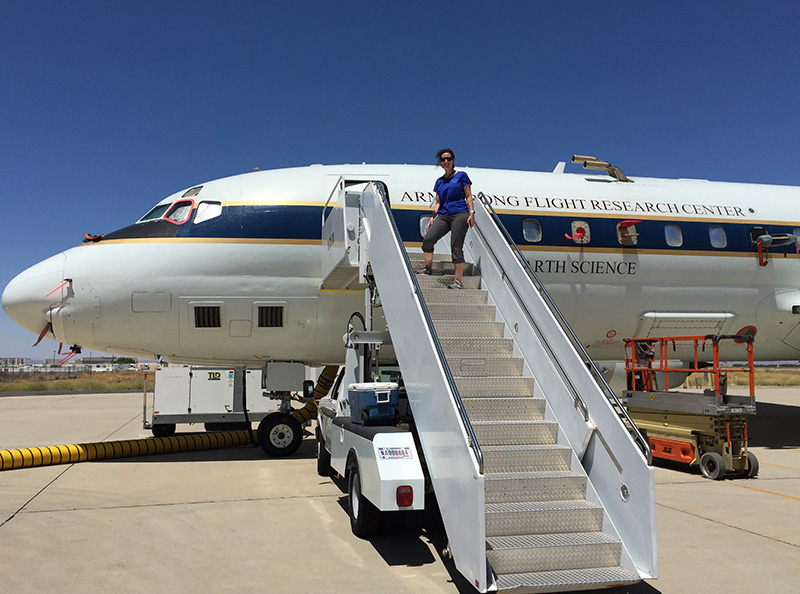
Reem Hannun
Assistant Research Scientist - Joint Center for Earth Systems Technology (University of Maryland Baltimore County)
Harvard University
Ph.D. in Chemistry
Dartmouth College
Bachelor's in Chemistry
I’m from the Carolinas (North and South) but consider Charleston, South Carolina, my hometown. My family is originally from Palestine by way of Lebanon, and my parents immigrated to the United States before I was born.
I took my first science course in sixth grade at a small school on a barrier island off Charleston. Our labs involved going out to the beach to explore all of the various specimens of plant and animal life. From that time, I’ve appreciated how science connects us to the natural world. As I got older, my enjoyment of the physical sciences evolved into an interest in Earth sciences because of the way it tied the abstract topics in physics and chemistry to human-scale problems like air quality, ecosystem health, and climate change.

In my work, I develop specialized instruments to measure the chemical composition of Earth’s atmosphere. As a grad student, I had the chance to participate in a field study where one of our instruments flew aboard the NASA ER-2, a repurposed spy plane and high-altitude aircraft. I found it so exciting that I helped put something together that could then go out and collect real measurements of our atmosphere, and I never tired of watching the plane take off and land.
I was also impressed by the resources NASA committed to studying our home planet. I got the opportunity to do postdoctoral research in the Atmospheric Chemistry and Dynamics Branch at NASA’s Goddard Space Flight Center. I have since been able to participate in several more NASA aircraft campaigns.
I’m an atmospheric chemist, which means I study the composition and chemistry of Earth’s atmosphere. As an experimentalist, I spend a lot of time developing and using specialized instruments that measure various chemical species, or types (e.g., oxidants, greenhouse gases), in our atmosphere.
One of the highlights of my job is doing field research. We fly our instruments on NASA aircraft to make measurements around the globe, and we use these data to better understand where the different gases in the atmosphere come from, how they evolve and interact, and their ultimate impacts on climate and air quality. Some of the field campaigns I have participated in include CARAFE, ATom, and FIREX-AQ.
During my time at NASA, I’ve also developed an interest in the exchange of gases between Earth’s biosphere (e.g., forests) and the atmosphere. These exchange processes, such as emissions and uptake by vegetation, play a significant role in mediating the atmospheric abundance of several trace gases, including greenhouse gases like carbon dioxide and methane, as well as more reactive species like ozone. I use our instruments and other analytical tools to try to better understand some of those underlying exchange processes.
You have the agency to shape your career, but you have to be proactive about seeking opportunities to do so. There have been many times when I could’ve easily given up when I felt discouraged. But if you persevere and have confidence in your abilities and intuition, you will find that you can accomplish more than you expect.
I have also really benefitted from taking the time to get to know my colleagues, and others in my field whose work inspired me. It has led me to where I am, formed the basis of collaborations, and most importantly, allowed me to build a positive work environment that I look forward to being a part of every day.
My mom inspires me both professionally and personally. As a new mom myself, I am in awe of how she seemed to dedicate 100% of her energy to all of the different aspects of her life: as a physician, a scientist, and a mother. She approached each role with such a positive and personable attitude, and I try to emulate her every day!
Planetary science is a global profession.

